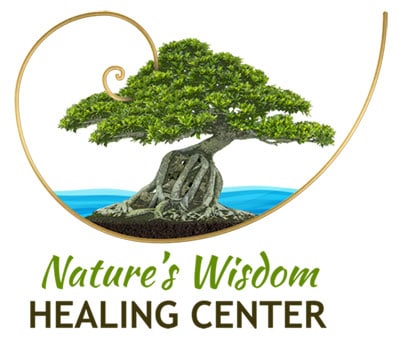 Acupuncture Works!
Acupuncture Works!
According to the World Health Organization, Acupuncture has been proven, through controlled trials, to be an effective treatment for the following diseases and health conditions:
- Adverse reactions to radiotherapy and/or chemotherapy
- Allergic rhinitis; including hay fever
- Biliary colic–Gallbladder attack or gallstones, pain due to gallstones temporarily blocking bile duct
- Depression; including depressive neurosis and depression following stroke
- Dysentery, bacillary dysentery, the most common and violent form of dysentery
- Dysmenorrhoea–pain during and around menses
- Epigastralgia, acute peptic ulcer, acute and chronic gastritis, and gastro-spasms
- Epilepsy and Seizures
- Facial pain; including cranio-mandibular disorders
- Headache–all types
- Hypertension–high blood pressure
- Hypotension–low blood pressure
- Induction of labor
- Knee pain
- Leukopenia–a reduction in the number of white cells in the blood, typical of various diseases
- Low back pain
- Malposition of fetus, and the correction of it. Malposition of fetus is the abnormal positions of the vertex of the fetal head relative to the maternal pelvis.
- Morning sickness
- Nausea and vomiting
- Neck pain
- Pain in dentistry; including dental pain and temporal mandibular dysfunction
- Periarthritis of shoulder
- Postoperative pain
- Renal colic; is a type of abdominal pain commonly caused by kidney stones
- Rheumatoid arthritis
- Sciatica
- Sprain
- Stroke
- Tennis elbow
Diseases, symptoms or conditions for which the therapeutic effect of acupuncture has been shown but for which further proof is needed:
- Abdominal pain from acute gastroenteritis or due to gastrointestinal spasms
- Acne vulgaris, the most common form of the most common skin disease
- Alcohol dependence and detoxification
- Bell’s palsy is a type of facial paralysis that results in an inability to control the facial muscles on the affected side.
- Bronchial asthma
- Cancer pain
- Cardiac neurosis
- Cholecystitis, chronic, with acute exacerbation
- Cholelithiasis
- Competition stress syndrome
- Cranio-cerebral injury, closed–including concussion, contusion, hematoma, trauma
- Diabetes mellitus, non-insulin-dependent
- Earache
- Epidemic hemorrhagic fever–a severe viral infection marked by fever and bleeding
- Epistaxis–nosebleed
- Eye pain due to injections into the tissue surrounding the eye
- Female infertility
- Facial spasm
- Female urethral syndrome, an infection of the urethra, with frequent painful urination
- Fibromyalgia and fasciitis; inflammation of the muscles and facia
- Gastrokinetic disturbance–an issue with the motility of the gastrointestinal tract
- Gouty arthritis– sudden burning pain, stiffness, and swelling in a joint, usually a big toe
- Hepatitis B virus carrier status
- Herpes zoster; herpes virus 3
- Hyperlipaemia; elevated levels of lipids in the blood plasma
- Hypo-ovarianism–Inadequate ovarian function, reduced secretion of ovarian hormones
- Insomnia
- Labour pain
- Lactation, deficiency
- Male sexual dysfunction–ED Erectile Dysfunction
- Ménière disease
- Neuralgia, post-herpetic
- Neurodermatitis
- Obesity
- Opium, cocaine and heroin dependence
- Osteoarthritis
- Pain due to endoscopic examination
- Pain in thromboangiitis obliterans
- Polycystic ovary syndrome (Stein–Leventhal syndrome)
- Post-extubation in children
- Post-operative convalescence
- Premenstrual syndrome
- Prostatitis, chronic inflammation of the prostate
- Pruritus–severe itching of the skin caused by various ailments
- Radicular pain syndrome–pain that radiates along nerve due to inflammation or other irritation of the nerve root (radiculopathy) at its connection to the spinal column
- Raynaud syndrome–a disorder causing numbness and coldness in fingers and toes
- Recurrent lower urinary tract infection
- Reflex sympathetic dystrophy–pain, swelling, and motor dysfunction of an extremity. This condition is often the result of trauma or surgery.
- Retention of urine, traumatic–the inability to voluntarily void urine
- Schizophrenia–a long-term mental disorder of a type involving a breakdown in the relation between thought, emotion, and behavior, leading to faulty perception, inappropriate actions and feelings, withdrawal from reality and personal relationships into fantasy and delusion, and a sense of mental fragmentation
- Sialism, drug-induced; an excess secretion of saliva.
- Sjögren syndrome; a long-term autoimmune disease affecting the moisture-producing glands; symptoms include dry mouth and dry eyes
- Sore throat; including tonsillitis
- Spine pain, acute
- Stiff neck
- Temporomandibular joint dysfunction
- Tietze syndrome–an inflammatory condition characterized by chest pain and swelling of the cartilage around the ribs and the breast bone.
- Tobacco dependence
- Tourette syndrome–a neurological disorder characterized by involuntary tics and vocalizations and often the compulsive utterance of obscenities
- Ulcerative colitis, chronic
- Urolithiasis–the process of forming stones in the kidney, bladder, and/or urethra
- Vascular dementia–problems with reasoning, planning, judgment, memory and other thought processes caused impaired blood flow and damage to the brain
- Whooping cough (pertussis)
Diseases, symptoms or conditions for which there are only individual controlled trials reporting some therapeutic effects, but for which acupuncture is worth trying because treatment by conventional and other therapies is difficult:
- Chloasma; extensive brown patches of irregular shape; the mask of pregnancy, associated use of oral contraceptives
- Choroidopathy, Central serous retinopathy (CSR), an eye disease which causes visual impairment
- Color blindness
- Deafness
- Hypophrenia–A feeling of sadness seemingly without a cause
- Irritable colon syndrome
- Neuropathic bladder in spinal cord injury
- Pulmonary heart disease, chronic
- Small airway obstruction
Diseases, symptoms or conditions for which acupuncture may be tried provided the practitioner has special modern medical knowledge and adequate monitoring equipment:
- Breathlessness in chronic obstructive pulmonary disease
- Coma
- Convulsions in infants
- Coronary heart disease (angina pectoralis)
- Diarrhea in infants and young children
- Encephalitis, viral, in children, late stage
- Paralysis
Acupuncture is an effective form of medical treatment that has evolved into a complete holistic health care system. Practitioners of acupuncture and Oriental medicine have used this noninvasive treatment method for over 3000 years to help millions of people become well and stay well.


